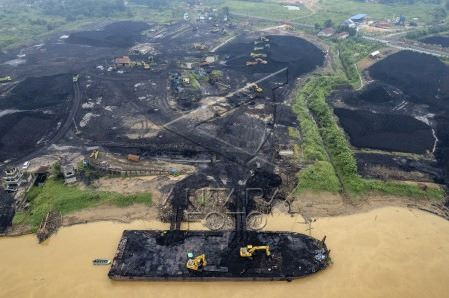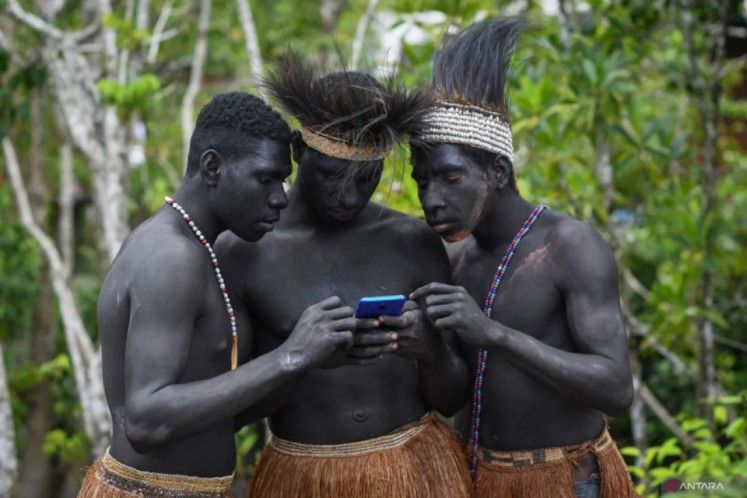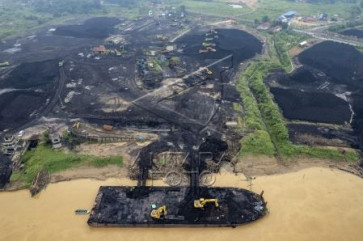Popular Reads
Top Results
Can't find what you're looking for?
View all search resultsPopular Reads
Top Results
Can't find what you're looking for?
View all search resultsThe lure of IUPs a challenge for faith-based green movement
Mass-membership religious groups have failed to challenge the state's development agenda, which still relies on the extraction of natural resources, fossil fuels and deforestation, thereby accelerating the climate crisis in Indonesia.
Change text size
Gift Premium Articles
to Anyone
 Banking on coal: Excavators pile up coal on June 20, 2024 at a storage facility near the Batanghari River in Muaro Jambi regency, Jambi. Statistics Indonesia (BPS) reported that the value of the country’s coal exports reached US$2.5 billion in May of this year, down 4.04 percent from the previous month. (Antara/Wahdi Septiawan)
Banking on coal: Excavators pile up coal on June 20, 2024 at a storage facility near the Batanghari River in Muaro Jambi regency, Jambi. Statistics Indonesia (BPS) reported that the value of the country’s coal exports reached US$2.5 billion in May of this year, down 4.04 percent from the previous month. (Antara/Wahdi Septiawan)
O
n May 30, President Joko “Jokowi” Widodo issued Government Regulation (PP) No. 25/2024, granting mineral and coal mining business licenses (IUPs) to mass-membership religious organizations without going through an auction process. The policy immediately sparked controversy and protests from various groups.
This move reinforces the assessment that the government's climate actions and targets are still very poor or categorized as "critically insufficient" (Climate Action Tracker, 2023). The report suggests that Indonesia failed to comply with the Paris Agreement, an international treaty on climate change mitigation, adaptation and finance adopted in 2015.
Will Indonesia's faith-based environmental movement remain promising in reducing the pace of the climate crisis amid Jokowi's power consolidation?
As Emile Durkheim (1912) points out in his functionalism theory, religion can serve as a means of social integration, collective expression and strengthening solidarity. In this context, religion is seen as very viable to raise awareness of the wider community to be responsible for preserving nature.
In recent years, religious mass organizations have played a crucial role in raising the moral environmental consciousness of religious communities in Indonesia. They have promoted the articulation of a religious environmental ethic to address the threat of global ecological crises, such as natural disasters, pollution and climate change.
We should be proud of the efforts made by religious mass organizations, such as Nahdlatul Ulama (NU), Muhammadiyah, the Indonesian Bishops' Conference (KWI), the Indonesian Communion of Churches (PGI), Parisada Hindu Darma Indonesia (PHDI), the Indonesian Buddhist Association (Permabudhi) and the Indonesian Supreme Council of the Khonghucu Religion (Matakin), which are involved in mainstreaming and advocating environmental issues in Indonesia.
In campaigning for environmental conservation, they have also collaborated in initiating various conference forums and declarations of religious figures to voice the crucial role of religion in addressing the climate crisis both at the national and international levels.


















